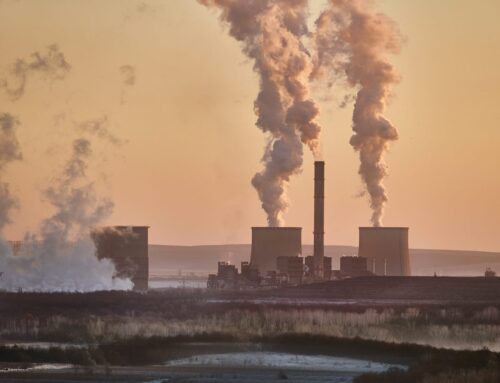“The goal was to fund solutions to serious environmental challenges in underserved communities — from providing clean drinking water to ensuring food access, climate readiness and more,” the statement read. “We received nearly 550 applications, requesting over $137 million — a clear sign of both the urgency and the local energy behind this work.”
FLOWS had planned to use the grant to expand work on clean water access at the San Lazaro mobile home community, where residents have endured foul-smelling and -tasting water sourced from a nearby trout pond for more than 15 years.
“Water is a human right,” Gabrieloff-Parish said. “The loss of this funding doesn’t just pause a project – it puts a frontline community’s well-being at risk.”
The group was also planning two other initiatives: an ecosystem restoration project at Tantra Lake affordable housing and a long-planned climate resilience hub.
The restoration project would have replaced turf with native plants and rain gardens while educating residents about Indigenous land practices and water stewardship. It may continue at a smaller scale, if other funding comes through.
The resilience hub, which FLOWS has championed since 2016, would have served as a neighborhood resource for planning how to respond to wildfires, floods and other climate-related disasters and use water and energy more sustainably. It is now delayed indefinitely.
“This should be a priority for the whole community,” Gabrieloff-Parish said. “There’s climate action to try to prevent the changes that are coming, but adaptation and resilience building has to be a part of our strategy now.”
She said FLOWS is unique because it builds leadership from within the communities it serves, rather than imposing outside solutions and walking away. The group’s three staff members – whose jobs are now in jeopardy – all come from frontline communities themselves.
“We want to be a part of identifying the problems and naming the solutions that we’d like to see,” she said. “We’re not just looking for free stuff like heat pumps or solar panels.”
From left to right: Nii Armah Sowah and Norma Johnson, recipients of FLOWS’ 2024 Community Climate Innovator Awards, pose with FLOWS’ Rinchen Indya Love, Michelle Gabrieloff-Parish and Gabriela Galindo. Credit: FLOWS The Boulder County Climate Justice Collaborative was planning to use its EPA grant to help residents respond to coal ash pollution from Xcel Energy’s Valmont Power Station, located just outside Boulder city limits. A 2023 Boulder Reporting Lab investigation found that coal ash, which contains toxic metals like arsenic and cobalt, stored at the site is in direct contact with groundwater and appears to be migrating slowly underground toward homes. As Xcel Energy prepares to clean up the site, new concerns have emerged about the potential air quality impacts of disturbing and releasing the ash into the air.
According to Alejandro Murillo, a member of the group’s steering committee, the EPA grant would have funded training for community members on how to provide public comment on Xcel’s cleanup permits, especially the one addressing air quality risks. It also would have supported community efforts to monitor air quality independently of Xcel, and connected residents with public health officials who could provide resources in case they experienced health issues related to the coal ash.
Now, that work is in limbo. EPA funding represented about 90% of the project’s budget.
“We’re going to make do with what we have,” Murillo said. “Given general federal administration changes, a lot of people also just don’t feel comfortable going to a training, so we’ve had to rethink that as well.”
The Valmont Power Station at 1800 63rd St. is pictured Dec. 3, 2023. Credit: Chloe Anderson Murillo added that fear is growing among the community, especially undocumented and Latino residents, due to Trump policies targeting immigrants.
“It’s very possible that some of these agencies could show up to this event without our knowing, and we don’t want to put people at risk of that,” he said. “So that’s why we’ve stopped all of our in-person team meetings.”
The group may hold one online training in lieu of four in-person ones, but Murillo said it won’t have the same impact.
“The suppression of voices, while maybe indirect, is definitely felt,” he said. “People are just nervous, and with good reason.”
He added that the EPA rules like the one that forced Xcel to address the coal ash pollution in the first place may be compromised if the agency continues to roll back or defund regulations.
“Here is a local source of pollution that’s literally contaminating groundwater [and] could be contaminating our air once the work gets done,” he said. “But [environmental] regulations are just being thrown out.”
“Without the EPA intact, we might have never known that this was a problem and this needed to get fixed.”
With the federal program gone, advocates like Gabrieloff-Parish are turning their focus to local government.
“We don’t have the federal Justice40, but we could have a local Justice40,” she said. ” “Climate is a priority of the county; it’s a priority of the City of Boulder. This whole state is really committed to climate. Let’s make it environmental justice, not just environment.”
She’s calling on local governments to adopt similar commitments — directing 40% of their climate spending to underserved communities.
With that investment, she said the communities most vulnerable to climate change could “be a part of the transition that we’re making locally.”
Related


